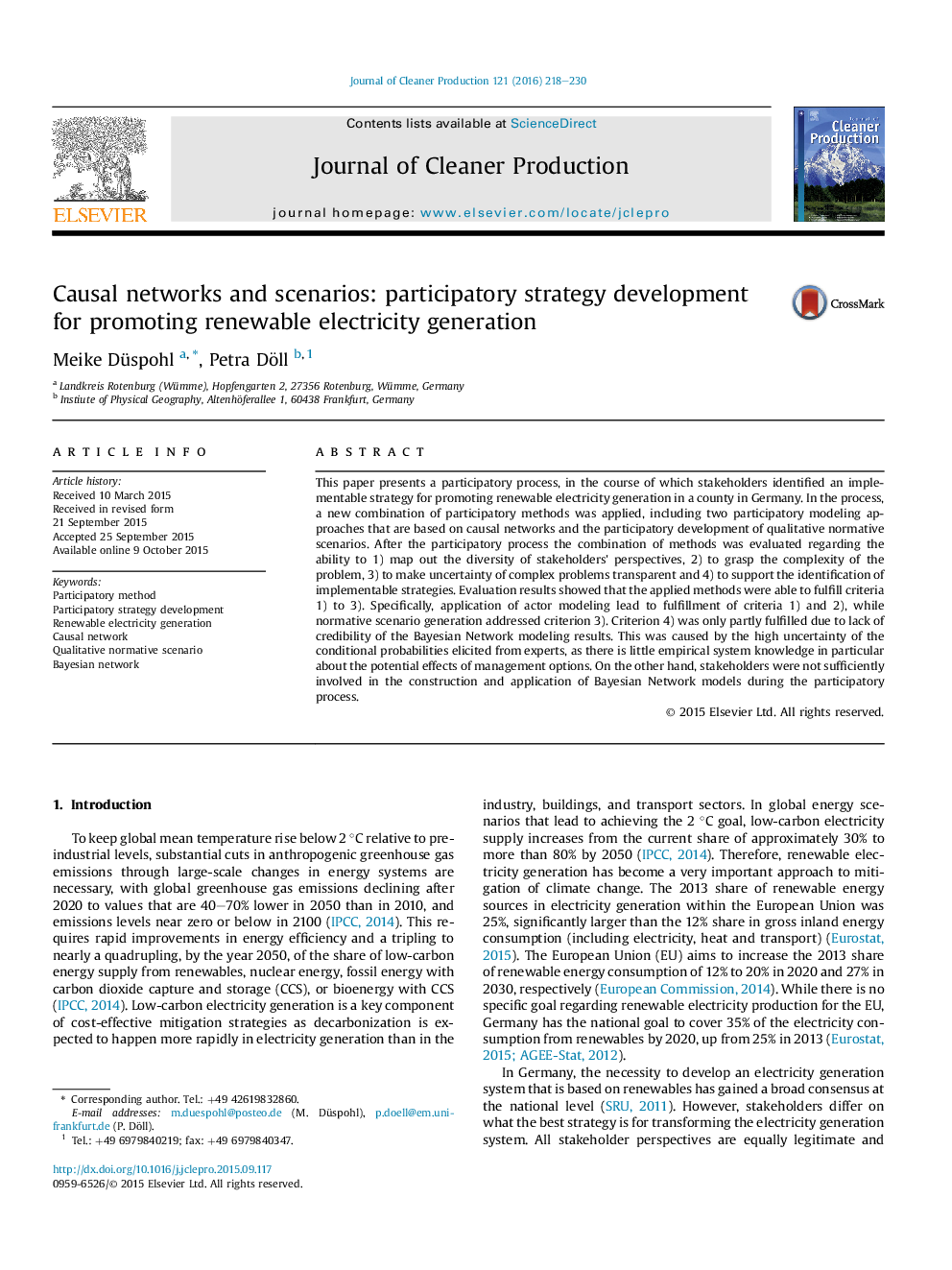| Article ID | Journal | Published Year | Pages | File Type |
|---|---|---|---|---|
| 1744171 | Journal of Cleaner Production | 2016 | 13 Pages |
Abstract
This paper presents a participatory process, in the course of which stakeholders identified an implementable strategy for promoting renewable electricity generation in a county in Germany. In the process, a new combination of participatory methods was applied, including two participatory modeling approaches that are based on causal networks and the participatory development of qualitative normative scenarios. After the participatory process the combination of methods was evaluated regarding the ability to 1) map out the diversity of stakeholders' perspectives, 2) to grasp the complexity of the problem, 3) to make uncertainty of complex problems transparent and 4) to support the identification of implementable strategies. Evaluation results showed that the applied methods were able to fulfill criteria 1) to 3). Specifically, application of actor modeling lead to fulfillment of criteria 1) and 2), while normative scenario generation addressed criterion 3). Criterion 4) was only partly fulfilled due to lack of credibility of the Bayesian Network modeling results. This was caused by the high uncertainty of the conditional probabilities elicited from experts, as there is little empirical system knowledge in particular about the potential effects of management options. On the other hand, stakeholders were not sufficiently involved in the construction and application of Bayesian Network models during the participatory process.
Related Topics
Physical Sciences and Engineering
Energy
Renewable Energy, Sustainability and the Environment
Authors
Meike Düspohl, Petra Döll,
